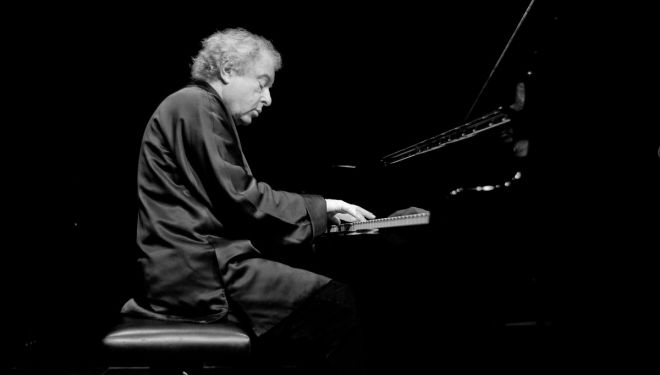
There are many virtuoso pianists, but there
is only one Sir András Schiff. The Hungarian-born but London-based musician is
renowned for his thoughtfulness, clarity and technical perfection. He is a
player to listen closely to and to wonder over, capable of creating drama from
the subtlest of moments. Who better, then, to perform the final sonatas of four
of the greatest composers, all of whom reached new heights of contemplative
acuity in their late works? This April, over three appearances at Wigmore Hall,
Schiff will visit the last piano sonatas of Haydn, Mozart, Beethoven and
Schubert. Given the ecstatc reception to his recent international appearances with this
repertoire, the series will be essential.
Each concert progresses chronologically through each composer’s final trio of sonatas. First off, Haydn’s Sonata in C Major is a brisk burst of energy, a worthy counterpoint to the intimate lyricism of Beethoven’s No. 30. Mozart’s No. 16 is a stately work designated as ‘for beginners’, while Schubert’s No. 21 sees him navigate the bittersweet soundscapes that defines his incomparable late music.
The second concert opens with Mozart’s No. 17, a masterfully light piece that belies its genesis during an episode of mounting debt. Beethoven’s No. 31 moves from an exquisitely pensive delicacy to a bravura pair of fugues. Haydn’s Sonata in D Major is short by even his standards, a sub-five minute shot of vitality that has been cited as a precursor to his pupil Beethoven. Finally, Schubert’s symphony-length No. 22 is a work of the sincerest poignancy that floats atop a series of exquisite melodies.
A week after commencing, Schiff brings the series to its natural close with each composer’s final sonata. Haydn’s E Flat major, usually considered his greatest, finds the classical sonata at its most sublime. Beethoven’s No. 32 begins with a profound expression of cosmic uncertainty before its second movement achieves a transcendent serenity. Its contrapuntal genius is matched in Mozart’s No. 18, sometimes dubbed ‘The Hunt’, which displays a gossamer lightness. Schiff will close the series with Schubert’s celestial No. 23, finished a mere two months before his death yet imbued with a current of hope.
Priority booking for Wigmore Hall’s Summer season is now open. General booking opens on 5 February.
Each concert progresses chronologically through each composer’s final trio of sonatas. First off, Haydn’s Sonata in C Major is a brisk burst of energy, a worthy counterpoint to the intimate lyricism of Beethoven’s No. 30. Mozart’s No. 16 is a stately work designated as ‘for beginners’, while Schubert’s No. 21 sees him navigate the bittersweet soundscapes that defines his incomparable late music.
The second concert opens with Mozart’s No. 17, a masterfully light piece that belies its genesis during an episode of mounting debt. Beethoven’s No. 31 moves from an exquisitely pensive delicacy to a bravura pair of fugues. Haydn’s Sonata in D Major is short by even his standards, a sub-five minute shot of vitality that has been cited as a precursor to his pupil Beethoven. Finally, Schubert’s symphony-length No. 22 is a work of the sincerest poignancy that floats atop a series of exquisite melodies.
A week after commencing, Schiff brings the series to its natural close with each composer’s final sonata. Haydn’s E Flat major, usually considered his greatest, finds the classical sonata at its most sublime. Beethoven’s No. 32 begins with a profound expression of cosmic uncertainty before its second movement achieves a transcendent serenity. Its contrapuntal genius is matched in Mozart’s No. 18, sometimes dubbed ‘The Hunt’, which displays a gossamer lightness. Schiff will close the series with Schubert’s celestial No. 23, finished a mere two months before his death yet imbued with a current of hope.
Priority booking for Wigmore Hall’s Summer season is now open. General booking opens on 5 February.
| What | Sir Andras Schiff: The Final Sonatas, Wigmore Hall |
| Where | Wigmore Hall, 36 Wigmore Street, London, W1U 2BP | MAP |
| Nearest tube | Bond Street (underground) |
| When |
On 02 Jul 16, 7:30 PM – 9:45 PM On 06 Jul 16, 7:30 PM – 9:30 PM On 09 Jul 16, 7:30 PM – 9:45 PM |
| Price | £15-45 |
| Website | Click here to book via Wigmore Hall |




